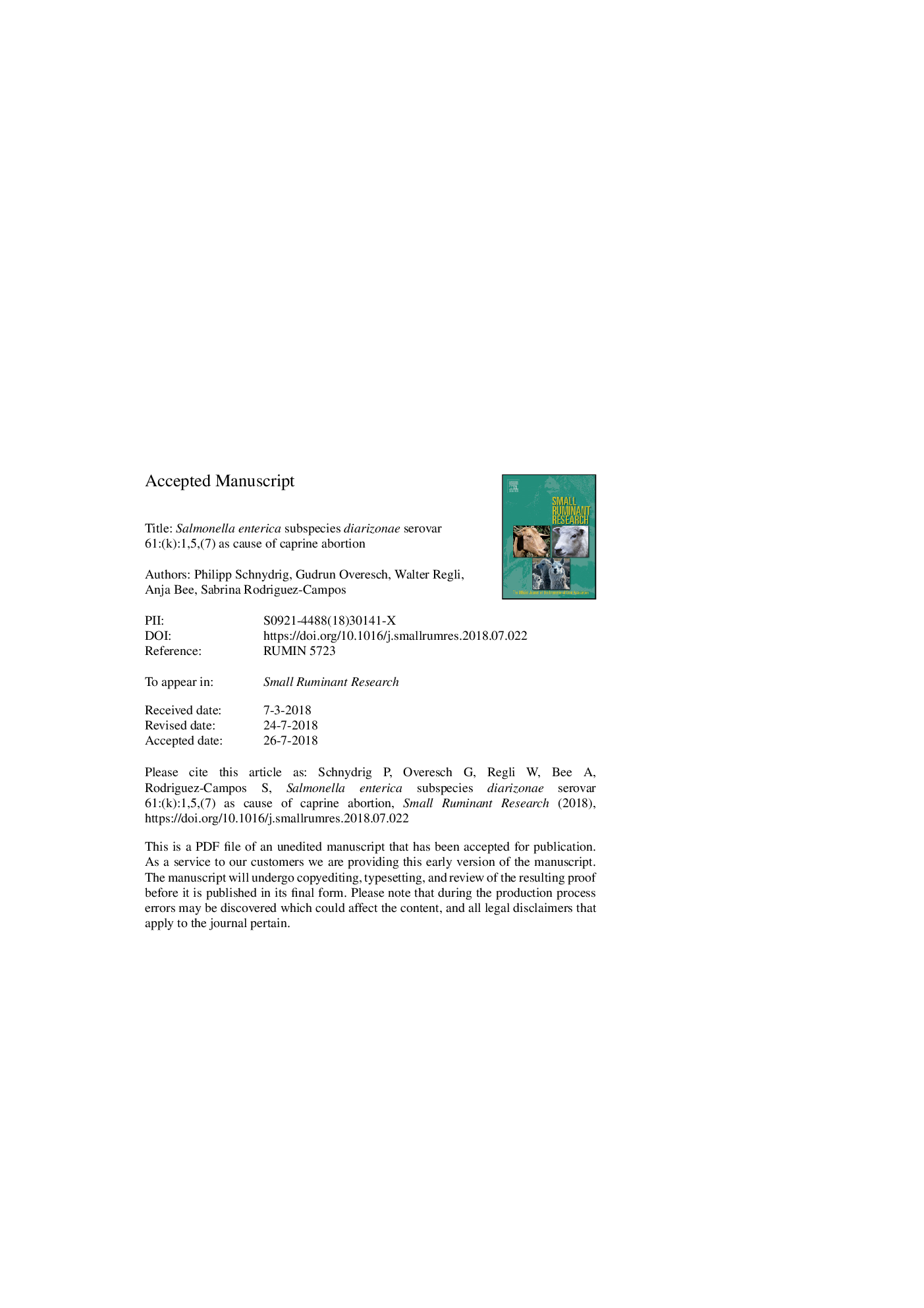| Article ID | Journal | Published Year | Pages | File Type |
|---|---|---|---|---|
| 8504140 | Small Ruminant Research | 2018 | 20 Pages |
Abstract
Salmonella enterica subsp. diarizonae (IIIb) 61:(k):1,5,(7) is commonly found in sheep and is considered to be host-adapted to this species, although it can lead to abortion, stillbirth, diarrhea, chronic proliferative rhinitis and orchitis/epididymitis. Infections with S. IIIb 61:(k):1,5,(7) in humans were also reported, although its zoonotic potential is generally considered low (Sörén et al., 2015). This study includes four strains from ovine abortions and one strain from abortion material from a goat. To our knowledge this is the first report of Salmonella enterica subsp. diarizonae 61:(k):1,5,(7) as cause of caprine abortion. The strains originating from abortion material and strains from different sample material including feces, nasal and carcass swabs from sheep were characterized by pulsed-field gel electrophoresis (PFGE) and antimicrobial susceptibility testing. Our study could not reveal a common pulsotype of the strains isolated from abortion. The clustering of the clinical strains with isolates from normal microbiota suggests a role of S. IIIb 61:(k):1,5,(7) as a real opportunistic pathogen. Antimicrobial susceptibility testing showed no phenotypic resistance for any of the strains.
Keywords
Related Topics
Life Sciences
Agricultural and Biological Sciences
Animal Science and Zoology
Authors
Philipp Schnydrig, Gudrun Overesch, Walter Regli, Anja Bee, Sabrina Rodriguez-Campos,
